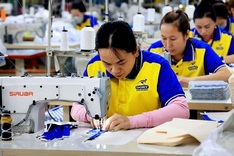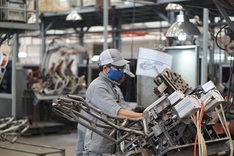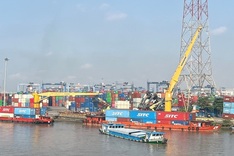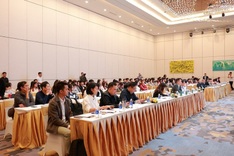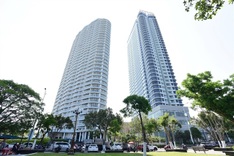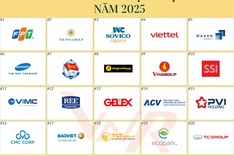The base interest rate under the State Bank Bill was a topic of debate among deputies at the 12th National Assembly’s 7th session on May 21.
 |
| Deputy Tran The Vuong said that it’s necessary to consider thoroughly removing a minimum lending rate |
Deputy Cao Sy Kiem from Thai Binh Province argued that a base rate was decided by the State Bank in accordance with inter-banking market activities. Usually, the State Bank was not involved in adjusting lending interest rates of commercial banks but it’s necessary to regulate lending rates in urgent circumstances to stabilise the market.
Deputy Phan Trung Ly from Nghe An Province stated that it’s necessary to review the advantages and disadvantages before deciding whether base rates should be kept or not. In fact, the bill mentioned base rate amendment but did not clarify the reason, thus it’s important to maintain this regulating tool.
Deputy Tran The Vuong from Hai Duong Province stressed that during the last 2 years, this tool played important role in stabilising the monetary market.
However, there were also opposite opinions about this issue. Deputy Nguyen Dang Trung from Ho Chi Minh City agreed to remove regulations regarding this special interest rate. He said that the State Bank did not lack tools to regulate the monetary market when it becomes unsteady. The State Bank applied discount rates, refinancing rates or increasing compulsory reserve rates at banks to manage money flow effectively. Deputy Trung argued that Vietnamese credit institutions need to follow an actual monetary supply rule in order to build a complete market economy.
 |
| Deputy Le Quoc Dung said, “The more benefit banks will have, the less benefit borrowers will get.” |
Deputy Le Quoc Dung from Thai Binh Province shared the common idea with Deputy Trung. He said that the rate was a very key factor in regulating monetary flow flexibility. In the circumstance of renovation, the State Bank played a partial role as central bank so it’s impossible to apply either a totally administrative tool or market tool.
The interest rate regime is considered to be the main reason. Commercial banks make a huge profit when they lend and mobilise money even when a crisis occurs.
Deputy Dung came to a conclusion that there were many other regulating tools than the interest rate. He recommended issuing regulations on negotiated lending and deposit rates as well as regulations on benefit of banks so when banks give loans at a high rate, deposit rates are also to be high.
However, Deputy Le Thi Thu Ba from Dong Nai Province disagreed with Deputy Dung. She believed that the base rate is an effective tool to prevent heavy lending rates.
Vice Chairman of the National Assembly, Nguyen Duc Kien, collected all opinions and requested that the Standing Committee of the National Assembly make a report to amend the State Bank Bill, in the direction of not "giving up the tool", but making clear that it will not become any one concrete interest rate, but instead a set of key rates.



